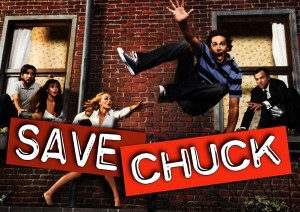 David Cronenberg has been one of my favorite directors over the past few years. I've enjoyed the new direction of his work as of late, but I'd always felt like my knowledge of his impressive resume of films was seriously lacking. In an attempt to rectify this, I picked up his 1979 film "The Brood." Markedly different from his more recent films, the movie is an unsettling little ditty about a custody battle, a new brand of psychiatry and, well, inhuman, murderous dwarves.
David Cronenberg has been one of my favorite directors over the past few years. I've enjoyed the new direction of his work as of late, but I'd always felt like my knowledge of his impressive resume of films was seriously lacking. In an attempt to rectify this, I picked up his 1979 film "The Brood." Markedly different from his more recent films, the movie is an unsettling little ditty about a custody battle, a new brand of psychiatry and, well, inhuman, murderous dwarves.The story is about Frank Carveth, a man whose wife is undergoing treatment in an experimental psychiatric therapy called psychoplasmics. Her psychiatrist has developed the radical new form of therapy in an effort to help his patients release years of pent up rage. The result of treatment is a physical manifestation of the anger which shows up in some patients as bodily sores, others as metastatic cancer, and in the case of Carveth's wife, it literally takes on a life of its own.
When Carveth discovers bruises and scrapes on his daughter after she had spent the weekend with her mother, he decides to investigate what is going on at Dr. Raglan's cult-like treatment facility. What he finds is that even Dr. Raglan didn't anticipate the extent to which Mrs. Carveth's rage would release itself. She need only think about a person whom she wishes bodily harm and her anger is physically borne into the world, in a human-like form that is intent only on seeing her ill will brought to fruition.
Needless to say, this is not your typical custody battle film. It's been described as "Kramer vs. Kramer" meets "Alien." While that may be a tidy way to categorize the film, I believe this one, like most Cronenberg films, defies categorization. We are expected to buy right into the "psychoplasmics" element of the story, even though there isn't in the way of an explanation about it. However, I believe that works in the favor of the film because Carveth is kept away from his wife for the duration of her treatment. In a way, we are discovering information about her treatment along with him, which makes the impact of the ending that much more surreal. And believe me, it is surreal.
While the setup is a bit rushed, and the logistics of the story were never completely explained, the film is still an undeniably creepy and interesting watch. Rumor has it that this film has been tapped for a remake, which seems odd to me. Part of the character of a film is the time in which it was made-- like a true film noir having been made in the 40's or 50's . "The Brood" is a distinctly 1970's film, owing much of it's creepy aesthetic to being a product of that time. Furthermore, do any directors today have big enough cajones to keep the final scene of this film intact? I think not. Stick with the original, you'll be glad (or horrified) that you did.
Score: 3 out of 5





No comments:
Post a Comment